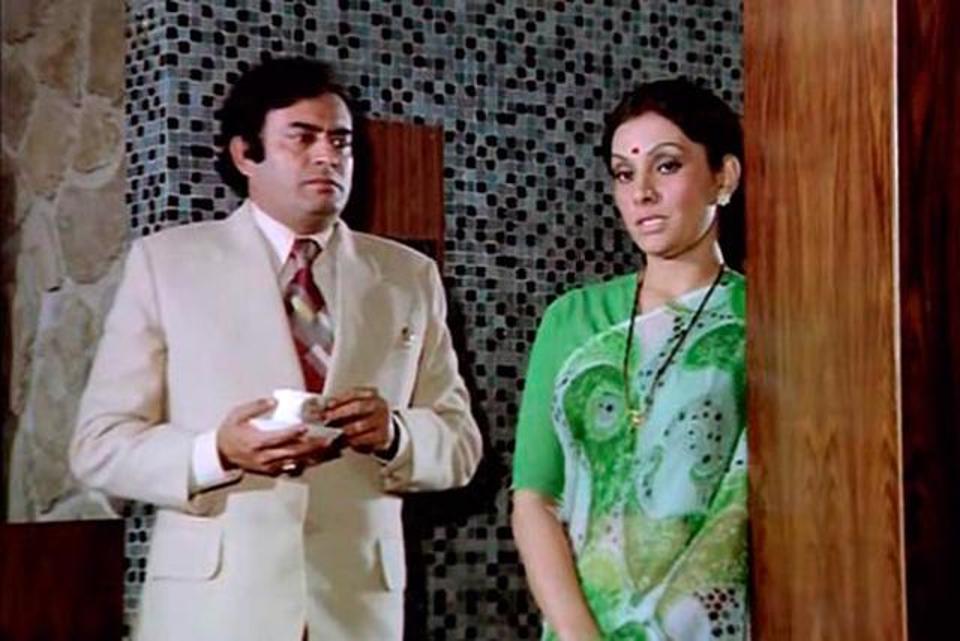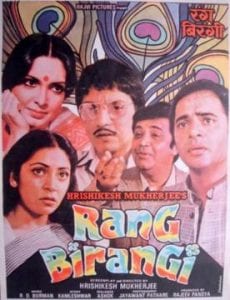
Pati, Patni Aur Woh — a film that mirrored today's world, 40 years ago

The 1978 super-hit comedy film Pati, Patni Aur Woh, (Husband, wife and the mistress) by BR Chopra is being remade in Hindi and will release on December 6.
The trailer of the film starring Kartik Aaryan, Bhumi Pednekar and Ananya Panday has already made waves, and even raised eyebrows for a dialogue which trivialises marital rape.
The spin-off of the original that starred Sanjeev Kumar, Vidya Sinha and Ranjeeta Kaur, seems to have retained traces of its original. While many films have explored infidelity, the 40-year-old flick remains a classic for its ingenuity.

Like many BR Chopra films, it was bold and ahead of its times when it broached the subject of a man experiencing a mid-life crisis and conflated it with the long-narrated story of Adam, Eve (Aadam, Huva), and the forbidden apple represented by Pati, Patni aur Woh (or the other woman) respectively.
Four decades before the #MeToo movement forced us to take a relook at workplace liaisons, this film discussed how relationships pan out in offices and adultery is a convenient option for someone suffering from the ‘pretty secretary syndrome’.
Also read | With Kishore Kumar, we happily yodelled ever after
The women in the film are strong and sensitive. They are not coy or comely, or just gullible to walk into the trap the man (Kumar as Ranjeet Chadha) has laid out for them. The wife played by Vidya Sinha (Sharda) is feisty and refuses to take any more of her husband’s unending demands. She even shouts back at him ‘Varna kya?’ (Otherwise what?), when he warns her against forgetting to heat the water for his bath next morning.
She confronts him with his lipstick-smeared kerchief and follows him on his romantic trysts with the younger secretary (Ranjeeta Kaur as Nirmala) to gather proof of his infidelity.
The secretary, like in many other films, has her own domestic problems — an ailing grandfather and a tight financial situation — but comes with a heart of gold that tempts her to have an affair with the boss, who needs companionship.
The man successfully sells her the sob story of his miserable life due to an ailing, bedridden wife. After all, he began as a salesman, mastering the art of convincing and smooth talking.
However, the secretary shows him the door when she is told by the wife that she has been duped by the man and returns the money he had given her for her grandfather’s medical expenses, to placate her.
Also read | In life and death, Guru Dutt remains an enigma
She decides that she would rather beg her relatives for money than take it from the man who cheated her. While cat-fights between the two women would have left a lot of room for hilarity, the director chose to show them as empathetic and sensitive to each other’s plight.
The man, while he shows signs of repentance after the dressing down by both women, also proves that his intentions cannot be changed, much like a dog’s tail which cannot be straightened. He, in the end, is yet again seen smitten by his newly-appointed secretary played by Parveen Babi.
The title track ‘Na Aaj Tha Na Kal Tha’ (There is no today, there is no tomorrow) sung by Kishore Kumar and composed by Ravindra Jain summarises the plot of how Adam and Eve bit the forbidden apple that got them banished from heaven and today they live on earth as ordinary human beings — husband and wife — and the apple has followed them to the earth as well. And the song ‘Thande Thande Paani Se Nahana Chahiye’ (One should bathe in cold water) continues to remain the most hummed number by ‘bathroom singers’.

The film inspired Hrishikesh Mukherjee’s Rang Birangi (1983), which had Babi, Amol Palekar, Deepti Naval and Farooq Sheikh in the lead roles, in a reenactment of a similar plot. This time, it had Deven Verma, who advises his friend (Palekar) to lure his secretary in a bid to help him rekindle romance in his marital life, which had been overshadowed by his workaholic nature.
Pati, Patni Aur Woh held a mirror to the adulterous lives of people, albeit on a lighter note, at a time when love was seen as eternal and relationships permanent. It reminded us how Aadam and Huva’s dilemma continues amid the vagaries of human behaviour or in other words ‘Aadam aur Huva ab is duniya mein rehte hai’ (Adam and Eve now live in this world).


